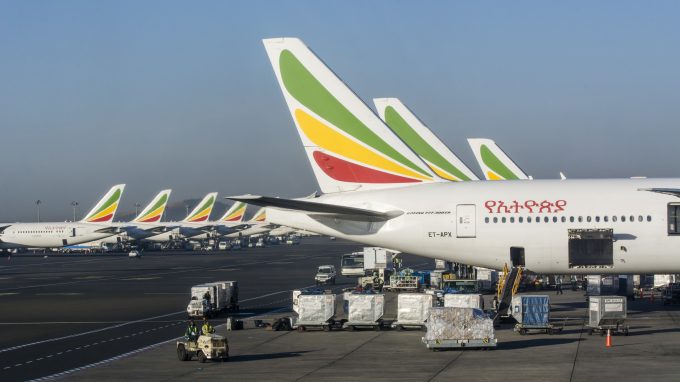Great expectations should see East Africa’s air freight hubs flying
Despite the general grim outlook for air freight, it seems intra-regional demand for shipments passing ...

Can a new Nigerian carrier, 49%-owned by Ethiopian Airlines, Africa’s most successful, transform the hamstrung air cargo market in the continent’s most populous nation?
Nigeria Air will launch in early October with two wide-bodied and six narrow-bodied aircraft, Ethiopian CFO Mesfin Tasew told Bloomberg TV.
“The prime ...
Keep our news independent, by supporting The Loadstar
Four crew members still missing as Wan Hai 503 continues to burn
Explosions and 'out-of-control' fire reported on Wan Hai box ship
Carrier price hikes hold, driving spot rates higher as space gets scarcer
Predatory rivals circle as the ripples from DSV's Schenker buy widen
MSC Elsa crew face criminal probe, as Wan Hai 503 firefighters battle on
'It's driving us mad', say forwarders as US court fails to end tariff turmoil
Transpacific rates ease as capacity boost proves too much for trades to digest

Comment on this article